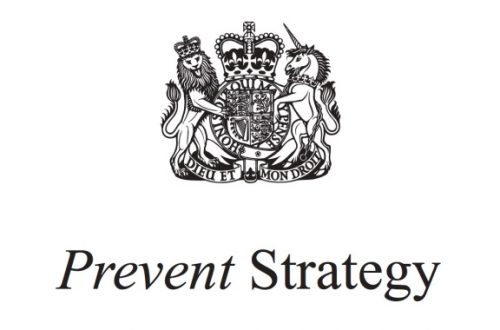This is a cross post by Aymenn Jawad Al Tamimi
Since the AKP (“Justice and Development Party”) first came to power in 2002, Turkey has increasingly turned its back on the West and Israel, forging much closer ties and aligning its interests vis-à-vis the Middle East with Iran and Syria. Such an alliance entailed, for example, a request for Israeli forces not to participate in the annual “Anatolian Eagle” military exercises, the formation of the “Turkey-Syria High Level Strategic Cooperation Council,” and support for Iran’s nuclear program.
Accordingly, these events have given rise to what has been termed the “resistance” bloc in the Middle Eastern Cold War, as opposed to the “status-quo” bloc led chiefly by Saudi Arabia. Could Turkey leave the resistance bloc in the present circumstances?
Two recent developments seem to point in the affirmative direction. First, the unrest in Syria has led to a refugee crisis along Turkey’s southern border. While Damascus continues to mass troops and tanks near the frontier with Turkey in order to prevent an outflow of Syrians into its northern neighbor, Turkey has given up on attempts to mediate a compromise between Assad’s regime and the protestors, describing the crackdown, in Prime Minister Erdoğan’s words, as “savagery.”
Of course, as Soner Cagaptay points out, Ankara’s first instinct will be to avoid a military confrontation, probably opting instead for a buffer zone, which the Turks similarly established in northern Iraq after the First Gulf War.
However, Cagaptay also notes that, should the buffer zone fail to relieve the refugee crisis — something that could well be the case if the Syrian security forces begin to commit massacres in the city of Aleppo, which has 3 million inhabitants and is located only 26 miles from Turkey’s border — Turkish military intervention in Syria will become a real likelihood.
Therefore, as Cagaptay argues, we would witness the collapse of all ties developed since 1998 between Ankara and Damascus, when the latter first stopped allowing the Kurdistan Workers Party (PKK) to use Syria as a base to conduct terrorist operations against Turkey, after the Turkish government threatened a military incursion to take out the PKK.
Prior to 1998, Turkish-Israeli relations were particularly strong as both nations harbored a common hostility to Damascus’ hosting of terrorist groups. Yet after 1998, Turks no longer viewed Syria as a threat or destabilizing player in the region, and many began to regard Israel as the real problem, in light of the failure of the Oslo Accords.
As the Middle East and Syria in particular become increasingly unstable, it is quite possible that we will see a rekindling of friendly ties between Israel and Turkey. Indeed, it is telling that this summer, the AKP government has pressured all Turkish NGOs not to take part in this year’s flotilla to Gaza. Concerning last year’s incident with the Mavi Marmara flotilla that resulted in the deaths of nine Turkish Islamists on board the ship, Turkey is now indicating its willingness to mend ties with the Jewish state so long as Israel agrees to apologize for the fatalities during the botched raid and provide compensation to the families of those killed. So far, Israeli politicians have affirmed that they are happy to do the latter, and there is a possibility that Ankara will drop its insistence on a formal apology.
Any Turkish military intervention in Syria and signs of a re-alliance between Turkey and Israel would incur Iran’s wrath. Besides Iran’s hatred of the Jewish state, Tehran greatly fears an end to Syria’s Baathist government, not only because of concerns at how an empowered Sunni majority might treat the Shi’a in Syria, but also owing to the fact that, as Daniel Pipes says, “Hezbollah’s very future is connected to the Assad regime.”
This point leads to the second source of tension that could mark a definite break between Ankara and the resistance bloc: namely, a clash of Turkish and Iranian interests over Iraq, especially the country’s Kurdish region. Although Iran and Turkey first cultivated friendly relations through their shared opposition to the American-led invasion of Iraq in 2003, Turkey has always preferred Ayad Allawi to be the Iraqi prime minister, rather than Nouri al-Maliki, who has been backed in his successful efforts for a second term as PM by Iran and the United States.
More recently, a point of contention has arisen over Iran’s military incursion into Iraqi Kurdistan, which the Kurdish separatist group PJAK is supposedly using as a base to carry out its guerrilla activities in Iran’s northwest. Despite its previous military campaigns in northern Iraq to deal with the PKK, Turkey now favors a more cautious policy, being receptive to the KRG (Kurdistan Regional Government) President Massoud Barazani’s conciliatory approach in visits to Washington and Ankara, while maintaining military outposts and camps in the Iraqi Kurdish towns of Amadiya, Bamerne, Sheladiz, and Kani Masi.
It should be noted that in the event that Turkey abandons the resistance bloc, it does not follow that Ankara automatically becomes a member of the status-quo bloc and a staunch ally of the United States and Israel. A more plausible outcome is that Turkey enters into a state of neutrality — rather like Libya under Gaddafi — and focuses independently on asserting its “neo-Ottoman” ambitions in the Middle East and North Africa.
Yet we can facilitate a Turkish move away from the resistance bloc. Washington and the EU must coordinate their approach towards Syria with that of Ankara, such that they should support a Turkish buffer zone and/or limited Turkish military intervention in Syria and back the uprising against Assad without committing their own forces. To this end, Obama’s personal rapport with Erdoğan and the AKP — partly rooted in the erroneous belief among senior AKP leaders that Obama is a Muslim — could prove useful here, just as when he was able to convince the Turkish prime minister in reportedly friendly exchanges to stop opposing American policy against Gaddafi’s regime. The result has been that both Turkey and the United States now have an identical outlook on Libya, having recognized the National Transitional Council in Benghazi as the legitimate Libyan government at a conference in Istanbul last Friday. Hence, there is no reason to think that a similar alignment could not be achieved vis-à-vis Syria.


